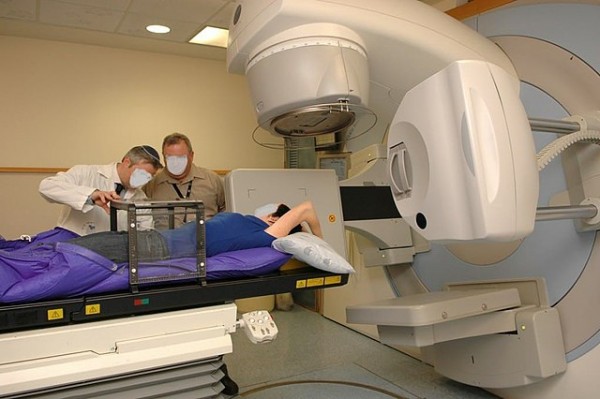Researchers Discover a Cancer Treatment Without Side Effects
Cancer treatment minus devastating side effects have long been a search for oncologists and scientists at the University of California, Irvine, and Switzerland's Lausanne University Hospital/the University of Lausanne may have discovered it.
UCI radiation oncology professor Charles Limoli and CHUV/UNIL radiation oncology associate professor Marie-Catherine Vozenin used an "ultra-high dose rate of radiation therapy" to remove brain tumors in mice, bypassing side effects typically brought by cranial irradiation. Clinical Cancer Research published the said research findings.
According to Limoli, it is irrational to expect that their finding may turn out to be a widespread choice for radiotherapy patients all over the world in a decade.
ALSO READ: Scientists Test the Combination of Immunotherapies To Eliminate Solid Tumors

In traditional radiation therapy, the process exposes a tumor and normal tissue nearby to radiation for a few minutes at a time.
The 'FLASH Radiation Therapy'
In traditional radiation therapy, the process exposes a tumor and normal tissue nearby to radiation for a few minutes at a time.
The FLASH radiation therapy or FLASH-RT, though, enables the same dose's delivery in only tenths of seconds.
The speed removes a lot of toxicities that usually plague cancer survivors long after undergoing radiation treatments, substantially reducing side effects like inflammation and damages to cognition.
As in conventional radiation therapy, the study authors fractioned the dose. Specifically, they divided the total dose over numerous sessions.
Through the use of FLASH-RT, the researchers found that similar total radiation dose delivered at faster dose rates eliminated brain tumors just as efficiently as the traditional approach.
An Important Approach
Vozenin, the principal investigator and a UCI adjunct professor said, this finding "is very important since fractionation is the standard" in clinical practice, not to mention the simplest way to transfer FLASH-RT at the clinical level.
Reports on the study indicate that even though it concentrated on the brain, FLASH-RT has been used for lung, skin, and intestinal cancer treatments while still preventing numerous complications induced by radiation.
Moreover, these additional studies have reportedly succeeded across various animal types, which include mice, cats, pigs and fish, and one human subject. It appears Limoli added that this therapy would be generally beneficial for most types of cancer.
Now that scientists have validated the efficacy of the method, groups worldwide are devising machines that would soon "make FLASH technology available in clinics."
According to reports, one device is awaiting approval in the United States and Europe. Vozenin is planning to utilize the technology, too, in two clinical tests at CHUV in early 2021.
To date, Vozenin and Limoli are examining the mechanisms behind the beneficial effects of FLASH-RT to understand further how the technology functions.
In the last three or four decades, Limoli said, "I'd say there's been nothing in the field of radiation science as exciting as this."
DON'T MISS THIS: 6 Reasons Why You're Gaining Weight Unintentionally
Common Cancer Treatment Side Effects
According to the Centers for Disease Control and Prevention, cancer treatments may have numerous side effects. They take place when treatment impairs healthy cells.
The CDC also said side effects could vary according to patients, the medicines they take, and the treatment they go through.
This is why the health agency recommends that once any of the side effects are experienced, it is ideal to talk to a medical professional. This will help manage them in many different ways.
IN CASE YOU MISSED THIS: Is Excessive Exercise Linked to Eating Disorders? Here's What Studies Say
Check out more news and information on Cancer on MD News Daily.
Oct 28, 2020 07:00 PM EDT





